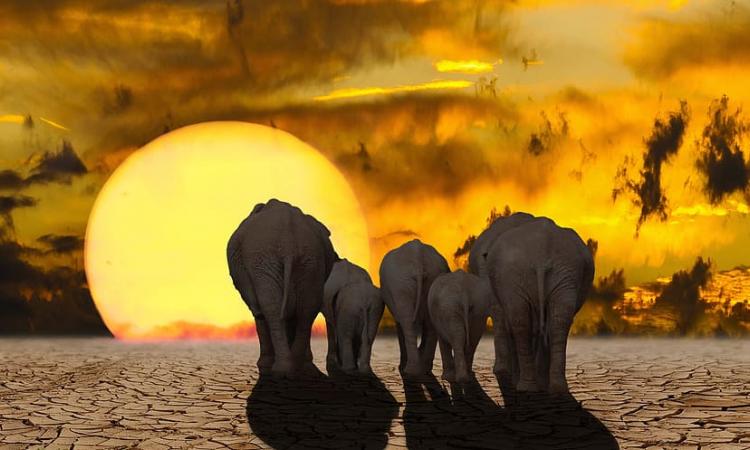
The Synthesis Report of the Intergovernmental Panel on Climate Change Sixth Assessment Report is a warning call for action on the quickly closing opportunity of keeping global warming below 1.5 degrees centigrade. Unless fossil fuels are rapidly retired, the impacts of climate change already faced by vulnerable communities will become difficult to handle. The IPCC report also highlights that we have the renewable energy technology, policy tools, and financial capital required for a just transition; however, “both adaptation and mitigation financing would need to increase many-fold”.
The loss and damage caused by heat waves, crop failures, and rising sea levels suffered by majorities of India’s working peoples are already significant and uncompensated. News reports tell us that due to heat, India already loses around 101 billion hours yearly. Earlier this year, the Ministry of Health and Family Welfare issued a letter to all states and union territories warning of the potential health impacts.
This year was the second successive spring that saw early heatwave conditions threatening the wheat crop. “Lost to Sea”, ActionAid Association’s recently concluded study in coastal districts of Odisha, captures people’s narratives testifying to loss of land due to sea intrusion, increased migration outflow, loss in mobility and increased salinity of groundwater.
ActionAid Association underlines the need to create a National Framework for Climate Change Induced Loss and Damage, which would incorporate a fund to provide compensation for loss and damage and a framework for assessing and computing the damage. At the global level, of course, this needs to be supported by the “Loss and Damage” Fund agreed to set up at the Twenty-seventh Conference of Parties, to which the most industrialized nations should contribute.
ActionAid Association is fully conscious that the elusive promises of technofixes or carbon offsets have allowed the biggest polluters to continue with business-as-usual, supported by what has tragically been reduced to greenwashing exercises. Thus ActionAid Association would like to recognize, celebrate and further enable communities and sections of society that have taken up the custodianship of ecological resources and, through their living traditions, protected these precious resources for centuries. Furthermore, we call on the need to secure the dignity of labour and livelihood for all those who provide ecological services – these include rag pickers and waste recyclers, and small farmers and agricultural labour practising agroecology.
We must cut greenhouse gas emissions to half and stop carbon dioxide emissions by 2050. We must make the use of fossil fuels history much sooner than planned, and such transitions must be just. Prioritizing phasing out coal will only shift the burden away from the Global North, which has had the majority role in causing climate catastrophes.
To have a reasonable chance of preventing warming beyond critical levels, we need to make a rapid and drastic shift away from all fossil fuels – oil, gas and coal now, a point argued by India and supported by the G77 in CoP’27. There can be no new oil and gas development, and disinvestments from existing developments should be scaled up rapidly. Meanwhile, planned investments for new oil and gas should fully finance the necessary scale-up of wind and solar. Financial and technology transfers from the Global North to the Global South must rapidly scale up to phase out coal and halt further investments.
Rapid green transitions mean energy transitions to solar and wind and investing several folds in such transitions above the current levels in towns and the countryside. However, keeping the principle of social justice as our primary guide, we must ensure that all such efforts are people-centric and community-led projects. We need to remain wary of vested interests that seek to make the issue of climate change another way to earn profit without caring for the ultimate impact on our increasingly fragile world.
Sandeep Chachra, Executive Director, ActionAid Association, says, “The synthesis report of the IPCC AR6 re-affirms that the world is facing the impact of climate change at a scale that was not anticipated to happen so soon. It also confirms that those least responsible for the crisis bear the greatest burden. However, we must recognize that so far, all of us, civil society, business and governments, have failed to bring a feminist transition to climate justice. We need to bring vulnerable communities and sections of society into the climate change discourse to ensure that grounded action can bring both the social and ecological justice the world needs.”
Short video on the Synthesis report of the IPCC Sixth Assessment Report (AR6)
/articles/ipcc-climate-report-warning-call